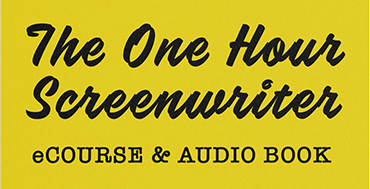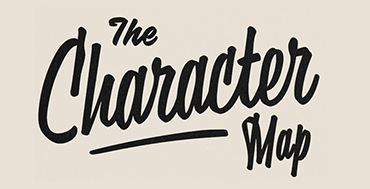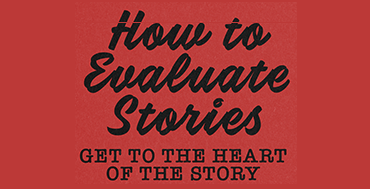#WritingAdviceWednesday – Writing Exercises: Forgive But Don’t Forget
Writing Advice Wednesday
Writing Exercises
As well as a relevant video essay I’ve found, I’ll be giving you writing exercises to perform, if you’re keen to either get some practise, or need some motivations to start a new script or novel. It’s exercises like this that form part of my One Hour Screenwriter course, which will help you write an entire feature film script in 22 weeks. You can purchase it at the shop here. You can also read testimonies here that show my methods have worked for plenty of other people.
This week, it’s time to put the past behind you…
Moving On
Imagine walking down a street and seeing a billboard that has your name on it. Underneath your name it says, “Please forgive me.”
Someone who has hurt you deeply has signed the message. Who is that person? What would you have to do in order to forgive this person?
Don’t write down what the other person would have to do. Write down what you would have to do.
Forgiveness is an action. It is not an emotion.
Forgiveness doesn’t mean that what happened was okay, justified or explainable.
Forgiveness means letting go of the ill will and festering anger or resentment toward something or someone in the past.
In order to forgive we have to see the situation as a whole, and not just from our wounded perspective. What would you have to do to be more objective about what happened?
What would you have to do to rise above your hurt and see the situation more expansively or more completely. List these actions and observations.
Rarely is someone entirely blameless in a situation. How was your mere proximity a contributing factor? How did your just being there complicate or trigger something for the one who hurt you? How did your presence or actions ignite the other person’s fear?
Remember, fear is not rational. It may not have been reasonable that you ignited the person’s fear. Fear is not reasonable.
Fear causes people to make trouble and act against everyone’s best interests. Fear draws people down toward their Dark Side. Fear makes people feel weak. Fear makes people act on their worst instincts.
What would you have to do to understand the effect of the other person’s fear in the situation?
List these actions and observations about the other person’s fear and write about their responses.
Forgiveness also requires that we remember and cherish the positive and let go of the rest.
Dig deep. What about the relationship or situation was most positive? Even if the relationship or situation was overwhelmingly bad, there must be one tiny moment that was positive. Find that one glimmer of human connection.
What was of most value about the person or the relationship? Only people we value have the power to hurt us emotionally. What about the person was good or potentially good. What did you value in them. List these qualities.
The last piece of the puzzle is making some kind of generous communication.
This doesn’t mean writing a letter that outlines your grievance, assigns blame to the other person and says, “I forgive you.”
Forgiveness means telling the person how much they meant to you and wishing them well in their lives. It means relinquishing your hurt feelings and replacing them with a generosity of spirit.
Forgiveness doesn’t mean putting up with abuse or a toxic relationship. It means closing a chapter of the past, moving forward and not wishing the other person harm or ill.
Hate is not the opposite of love. Hate is a continuing passionate connection with someone. Forgiving the person who hurt you severs that passionate but toxic connection once and for all.
The best definition of a lack of forgiveness is: Drinking a glass of poison and waiting for the other person to die. Bitterness, resentment or ill will only poisons the one who holds onto it and drinks from it.
Again, it bears repeating: Forgiveness is an action. It is not an emotion.
Forgiveness does not mean that what happened was okay, excusable or acceptable.
Forgiveness means letting go of ill will and festering resentment about a past circumstance, situation or person you cannot change.
How hard would it be for you to forgive the person who hurt you? What are the obstacles to your forgiveness?
Write about your situation and your obstacles for forgiveness. Explore this issue as thoroughly and completely as you can. Be as specific as you can.
Next, do this exercise for your character. Who does your character need to forgive? Write down what your character would have to do. Go through the above process for your character.
Make forgiveness as hard on your character as it would be on you. Write an action list for your character.
Can your character forgive? If not, how does this lack of forgiveness poison his or her life?
Video Essay of the Week
Whilst not directly about forgiveness, it is important to remember that emotional disconnect can damage your film both on the page and in front of the camera:
Let me know what you think of this week’s writing exercise by emailing me at [email protected]. I’d love to hear from you as we go forward with more of these writing exercises. Next week, we’ll be getting uncomfortable…
Until then, remember- all you need to do is Get Started and Keep Going!
– Laurie



Create a visual map for a character’s emotional journey. Pull stories from character rather from rote story structure beats. Some of the largest international media companies, use this in story and character development.


A clear concise guide for writers and producers to have by their side as they embark on a project. It gives a really vital reminder of what is key for story success.

No comment yet, add your voice below!